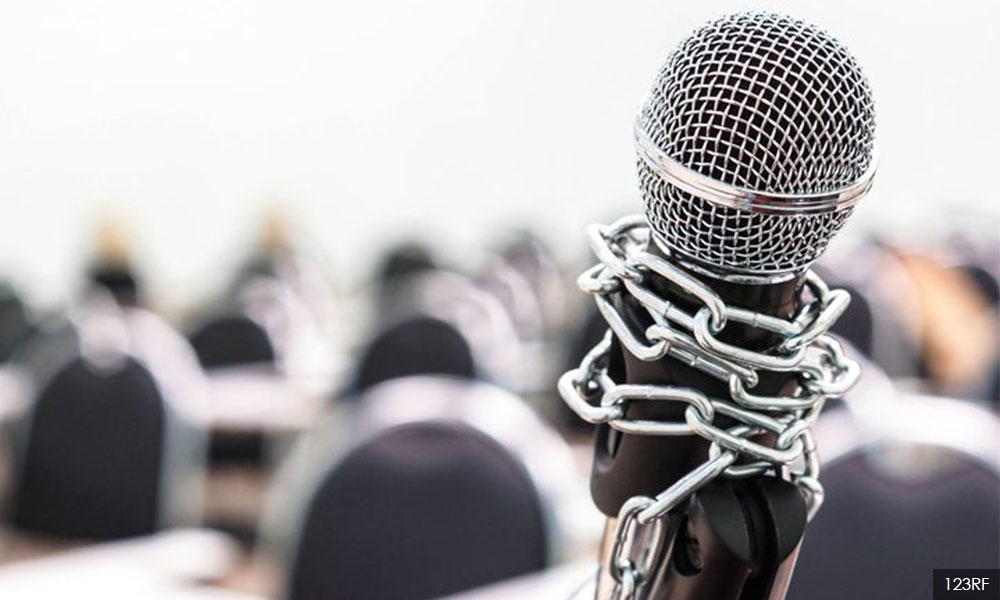Polarisation over race and religion have afflicted Malaysia for decades. Political elites regularly appeal to these divides by manipulating the media and playing up racial rhetoric, which constrained the adoption of much-needed reforms and fuelled political instability.
In Malaysia, we are faced with the twin challenges of media suppression and information pollution; the powerful can easily exploit oppressive laws, cyber troopers, and bots to create biased news, websites or comments to spread pro-government propaganda or divert the public’s attention from important issues.
Due to the abovementioned problems, there exists an unhealthy media environment for the formation of opinions.
The media can be easily focused or diverted to racial and religious issues created by politicians, rather than issues about the progression of the country that truly benefit Malaysians.
For example, the recent Timah controversy (an issue on a whiskey label) and Budget 2022 occurred at the same time.
However, it was found that the media and public discussions were focused on the Timah controversy instead of Budget 2022. Why was it so? The discussion about Timah can only bring about the change of a product label.
Distorted phenomenon
On the other hand, the budget is truly about the advancement of the economy, creation of job opportunities, promoting better education and more.
It is also worth noting that the public’s anger caused by the three pages of Jawi in a textbook was greater than its anger towards the release of corrupt politicians and the fake halal meat scandal.
Why are Malaysians angrier with three pages of a textbook than politicians squandering millions or billions or the rampant corruption causing Muslim individuals to unknowingly consume meat that infringes their fundamental right to practise their beliefs?
Why are such distorted phenomena happening in Malaysia?
Because our media is manipulated.
In a research conducted by the University of Nottingham and Centre for Independent Journalism (CIJ), team lead Tessa Houghton arrived at the conclusion that many influential media are used as a tool of division rather than of reconciliation.
This research was focused on traditional media, but the observation is also seen in social media. In light of information disorder, the media has unfortunately become a political tool to further politicians’ interests.
Proposed media reforms
There is an urgent need for the following five media reforms:
- There is a need for large-scale public resilience and media literacy programmes. This is to raise greater public awareness on media manipulation that fabricated race or religious topics. The Timah controversy and the Jawi issue are political tools meant to distract Malaysians from holding those in powerful positions accountable. The public should not react to such issues and instead redirect the discussions to important issues such as economic advancement and job opportunities. The shift in our discussions will naturally lead to the change of media focus.
- The establishment of an independent Malaysian Media Council (MMC) is essential to regulate problematic media content. The MMC should be managed by an independent panel of experts to regulate politically or commercially motivated content that is damaging to public discourse. The MMC would also play a role in promoting more ethical and investigative journalism. An MMC pro-tem committee was set up when Gobind Singh Deo was the media and communications minister, but the full MMC establishment was unfortunately paused due to the Sheraton Move.
- We need to pressure social media to contextualise their regulatory standards on hate speech and disinformation and improvise their advertisement policies. For example, the controversial post by former premier Dr Mahathir Mohamad - “Muslims have the right to be angry and to kill millions of French for the massacres in the past” was taken down by Twitter within an hour. Social media is responsive to hate speech recognised internationally, but not contextualised hate speech in Malaysia such as “Chinese rich, Malay poor” as there is little or no measure to curb the spread. In light of the proliferation of damaging content, the need to review and contextualise their content moderation policies are pivotal.
- We must abolish oppressive laws such as Section 233 of the Communications and Multimedia Act (CMA) and the Printing Press and Publication Act which are often abused by politicians to silence dissent. In 2015, The Edge was shut down for three months after reporting the 1MDB scandal on the ground that it was reporting issues against the public interest. Youth activists who attended the #Lawan protest were also caught under Section 233 of the CMA. The removal of these oppressive laws will encourage investigative journalism which keeps powers in check.
- We must introduce proportionate laws to curb hate speech. The criminalisation of hate speech should incorporate the six-part threshold test of the Rabat Plan of Action to prohibit the advocacy of national, racial, or religious hatred that constitutes incitement to discrimination, hostility, or violence.
It is only when Malaysians’ discussions are fixated on important issues such as economic advancement, clean government and job opportunities that the country can truly progress. - Mkini
MIAOLING NG is a media reform activist.
The views expressed here are those of the author/contributor and do not necessarily represent the views of MMKtT.





No comments:
Post a Comment
Note: Only a member of this blog may post a comment.